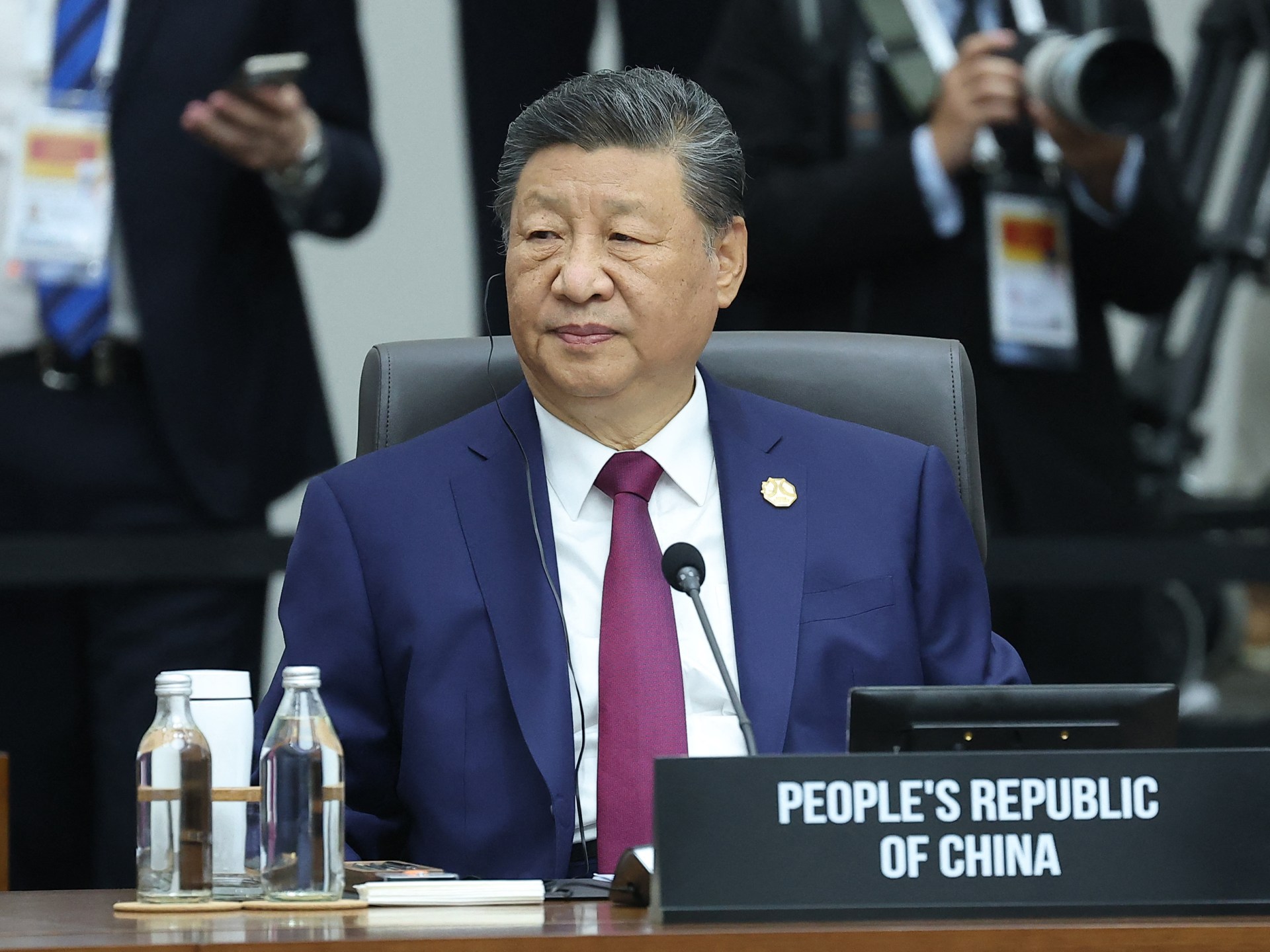At an annual economic regional forum that Donald Trump had pointedly snubbed, Chinese President Xi Jinping demanded efforts to promote economic globalization and multilateralism.
As Trump left the nation a day earlier after reaching agreements meant to end the escalating trade war with China, Xi took center stage at the two-day Asia-Pacific Economic Cooperation (APEC) summit that kicked off Friday in the south Korean city of Gyeongju.
Recommended Stories
list of 3 itemsend of list
During the opening session, Xi said, “The more turbulent the times, the more we must work together.” “The world is going through a period of rapid change, with the world’s situation becoming more complex and volatile.”
The Chinese leader positioned his nation as the protector of free trade agreements, which according to observers are threatened by Trump’s “America first” and “treasure first” policies.
Xi urged other nations to work together to expand cooperation in green industries and clean energy, as opposed to US efforts to decouple its supply chains from China.
Solar panel exports from China, electric vehicles, and other green technologies have received criticism for undermining domestic industries in the nations they export to.
After striking a number of deals with Xi to ease their growing trade war, the US president left the nation before the summit. Trump claimed that Beijing had agreed to allow the export of rare earth elements and to begin purchasing US soya beans in exchange for lowering tariffs, and that his meeting with Xi on Thursday was a roaring success.
The US president’s decision to skip APEC, a forum that accounts for nearly 40% of the world’s population and handles more than 50% of global goods trade, is in line with his well-known dislike of large, multi-nation forums, which have traditionally been used to address enormous global issues. He favors grand spectacle one-on-one meetings that generate broad media coverage.
According to Al Jazeera’s Jack Barton, who is based in Gyeongju, Xi is “filling the vacuum” that Trump has created.
Xi will meet with new Japanese Prime Minister Sanae Takaichi and South Korean President Lee Jae Myung separately on Friday for his first visit to the country in 11 years. On Saturday, Xi and Lee will have a meeting to discuss denuclearization of the Korean Peninsula.
Barton claimed that the meeting with Takaichi would “set the tone for the foreseeable future” in terms of diplomatic relations. Chinese media portrays the Japanese prime minister as a far-right nationalist who has visited the polarizing Yasukuni Shrine.
A political bulwark in East Asia, the site is dedicated to 2.5 million Japanese who perished in conflicts that started in the 19th century. Among those honored are former World War II leaders who were found guilty of crimes against humanity as “Class A,” some of whom committed atrocities in China during the 20th century under the Imperial Japan flag.
According to Barton, “South Korea and China have some of these historical misunderstandings with Japan.” They basically stated, “We’re going to put legacy issues on one side and diplomacy on the other, so there’s room for a positive outcome.”
On Friday, Xi had a meeting with Canadian Prime Minister Mark Carney to talk about trade. According to Barton, “We’re anticipating the conclusion of perhaps the most significant significant economic deal.”
At the APEC meeting, leaders from 21 Asian and Pacific Rim countries and representatives of their respective countries will discuss ways to promote economic cohesion and address common issues.
The APEC region is plagued by a number of issues, including the US-China strategic competition, supply chain flaws, ageing populations, and job-killing AI effects.
To prevent repeating the failure to issue a joint statement in Papua New Guinea in 2018 due to US-China trade friction, South Korean officials said they have been in contact with other nations.
Due to the divergent opinions of APEC members, South Korean Foreign Minister Cho Hyun stated last week that issuing a joint statement strongly supporting free trade would be unlikely.
The outcome, according to Al Jazeera’s Barton, might be a “watered-down version.”
Source: Aljazeera

Leave a Reply